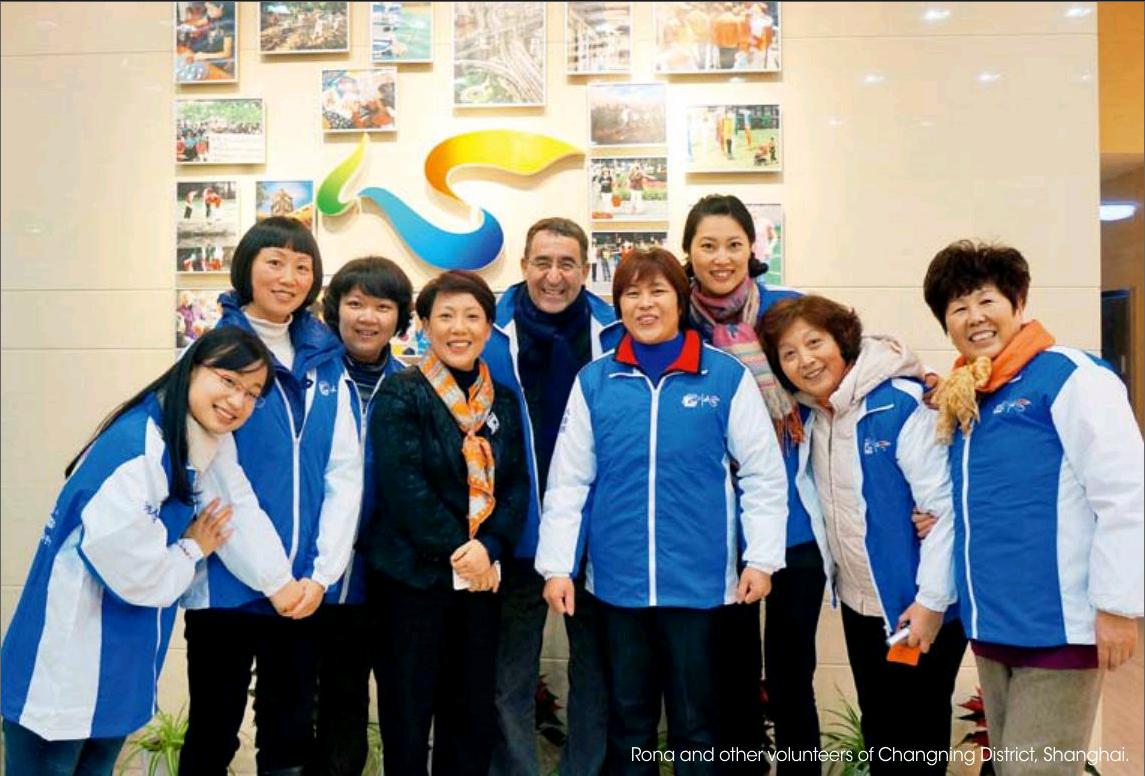Sharing Chinese Dreams
2014-02-24byYinXing
by+Yin+Xing

Even though I was told before the interview that Mustafa Noyan Rona of Turkey could speak very good Chinese, I was still surprised at his fluent Mandarin occasionally mixed with Beijing and Shanghai dialects when I met him. Rona began to learn Chinese in 1978, a year of great significance to China, when Deng Xiaoping proposed the reform and opening up policy, which resulted in a waterfall of reform and vitality. But Rona never expected such momentous changes to be influential on his life.
“I attended my first Chinese class in September 1978,” Rona revealed. “I heard the news about Chinas reform and opening up, but had no idea what it really meant.” He was studying Turkish history in college at the time. During his studies, he became fascinated by the discovery that ancestors of the Turks once lived in northern China. “At first, I just wanted to learn Turkish history, and its early chapters are intertwined with Chinese history and written in Chinese. So I started studying Chinese,” he continued. At that time, his friends and family were surprised by his decision, but they now see it with admiration. “Back then, my dream was like everyone else: study hard, get into a prestigious university, get a masters degree and find a good job. But my dreams became richer along with China, whose development has exceeded my every expectation.”
In 1982, Rona graduated from the Sinology Department of Ankara University with top scores, and became one of the first government-sponsored students to go to China. He received a masters degree from the History Department of Wuhan University in 1986. With China more open, Turkey needed people who knew about China, so Rona was hired by the Turkish Embassy in Beijing. “At that time, China was just becoming more connected to foreign countries, so I always had a lot of work at the embassy,”Rona recalled. “In 1995, the Turkish President visited China. As a translator, I accompanied him to Shanghai and Xian.” After the visit, the Turkish government decided to establish a consulate in Shanghai, and Rona was appointed deputy consul.
“My job in the Shanghai consulate was an official one, which removed me from the local community and left me with only minimal contact with ordinary people.” In the 1990s, more foreign banks were granted access to invest in China. In 1999, Turkish GarantiBank opened an office in Shanghai. Rona left the consulate and headed to the bank to serve as a trade negotiation representative and consultant, which also helped him become more integrated with the local community.

Rona has become an honored resident for his contributions to the neighborhood. For ten years straight, Rona financed the education of ten impoverished students. One has graduated from college, one is still in college, and the others are in high school. Rona volunteers as a traffic warden to help ease morning rush hour and monitor road condition in inclement weather. He was invited to consult for taxi companies, which adopted many of his suggestions. Rona even appeared in a TV series and the Chinese Spring Festival Gala, and all of his earnings from those gigs were donated to the Hope Project, which builds primary schools in Chinas poorest areas. In 2012, Rona was honored by the city for his outstanding citizenship, and received Shanghais ‘green card – a piece of paper usually only acquired by entrepreneurs who invest massive sums of money in Shanghai.
“Shanghai is my home. I want it to improve,” beamed Rona. He hopes the city can become a financial hub rivaling New York and London. “Shanghai needs to update its financial services and products as well as further open its financial market with less administrative interference,” he suggested. The decisions of the Third Plenary Session of the 18th CPC Central Committee give Rona optimistic expectations for Chinas future financial reform. “As far as I know, related details havent been released yet. Shanghai has set up a free trade zone and already has special status in the country. I believe some of the new measures will accelerate Chinas financial reform.”
China and Turkey established diplomatic relations 42 years ago. Rona has lived in China for 30 years, becoming an observer of the development of China as well as of the relationship between the two countries. “I think I have been lucky to live through a period of such rapid growth,” he explained. “I can feel the development and progress every day. The development of this country creates opportunities not only for its own people, but also for foreigners like me.”
Rona is still pursuing his dreams. “For a nation, dreams represent the aspirations for development, prosperity and peace. For an individual, dreams are aspirations for self-growth, happiness and health. My dreams continue. The Chinese Dream is also eternal. It is hope for the development of both individual and nation.”
